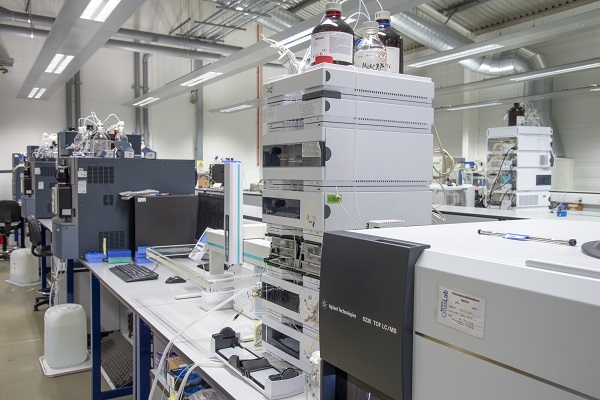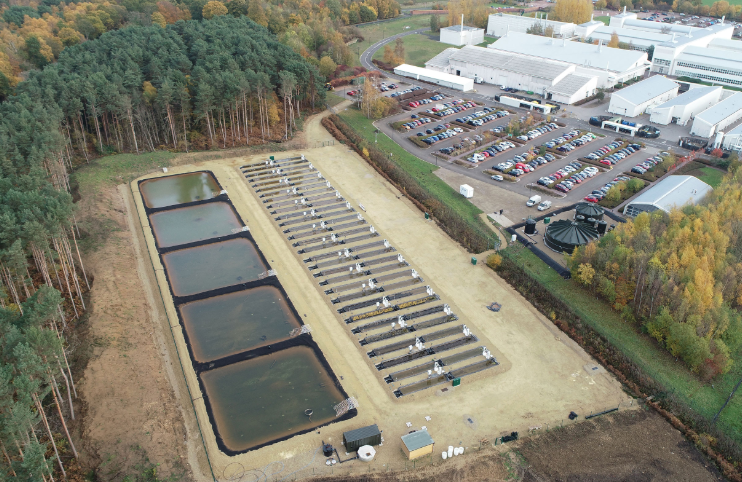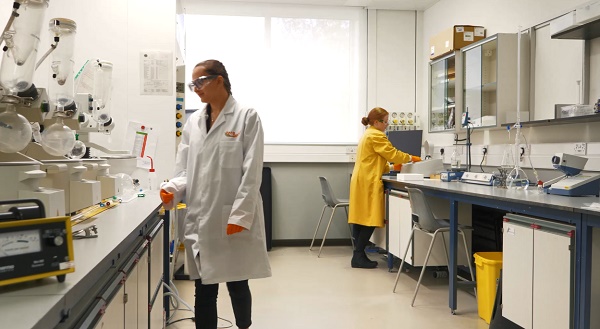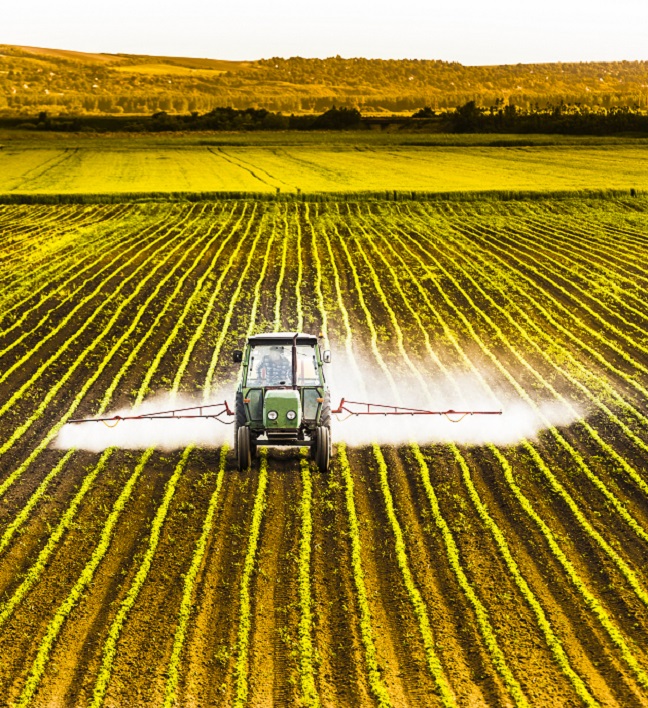
Visit our other sites
-
Fapas - Proficiency Testing
Globally recognised provider of proficiency tests, running over 400 tests annually across an extensive range of matrices and analytes
-
Great Crested Newts Testing
A single sample taken by an ecologist at any time during the newt breeding season can determine their presence or absence, saving you time and money
- As part of our continued drive for quality and market-leading scientific excellence, why not see how our extensive laboratory and animal facilities can deliver for the development and international registration of your agrochemical products.
- See how we can help

Our scientists navigate complex analytical chemistry and regulatory requirements for our clients. Innovation is at the heart of everything we do.
As part of our continued drive for quality and market-leading scientific excellence, our holistic approach and smart working practices ensure our services stand up to the most rigorous scientific and regulatory standards. Fera Science has been serving the testing and regulatory needs of the world’s agrochemical and veterinary medicine companies for over 30 years now, collaborating in the development and registration of new and existing active ingredients and formulations with particular expertise in the design of tailored study programmes to meet the regulatory needs of new products and their intended markets.
We have full animal and laboratory facilities offering a wide range of required studies including chemistry, efficacy, ecotoxicology, metabolism, environmental studies (eFate), field trials, residue analysis including endocrine disruptors. Learn more about our services and click below.
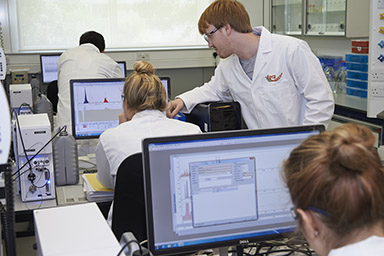
Ecotoxicology
Ecotoxicological studies of a substance are of great importance, since effects on organisms in different environmental compartments can be measured and evaluated. We offer in our laboratory studies of aquatic and terrestrial ecotoxicology. This can be performed as acute, subacute or reproductive studies.As aquatic monitor organisms bacteria, algae, daphnia or fish can be used. Depending on the test method and stability of the test item the aquatic studies are performed static, semi-static or as flow through study. Furthermore we perform bioassays with earthworms (Eisenia andrei), blackworms (Lumbriculus variegatus) or chironomids (Chironomus riparus) as well as studies on the biotransformation (C and N transformation) in the test system soil.We will advise you in the selection of an appropriate test method for your substance and offer you the complete studies with the necessary analysis!
The team is dedicated to the development of technologies that enable stakeholders to make decisions across the agri-food chain and in the environment. Our interest is in the application of generic solutions such as PCR, isothermal amplification and next generation sequencing techniques. In particular we have considerable expertise in developing diagnostics for front line use. We work with growers, agronomists and Defra developing methods to enable better detect of plant pathogens in propagation material, soil, water and air. Early detection of pathogens in crops enables us to initiate control measures much earlier, preventing spread and reducing the impact of disease. We offer the most comprehensive range of testing services and are the UK's largest tester of crop health testing in excess of 8,500 samples a year.
-
around one third of the global harvest is lost to weeds, pests and diseases every year. Presenting a major challenge to both agriculture & our natural environment.
-
we can help with identification, risk assessment, monitoring and control of key pests and pathogens affecting crops and plants (both quarantine and non-quarantine).
-
Our work on plant diseases includes surveillance and risk forecasting, supported by our expertise in epidemiology, pathogen and disease identification and molecular diagnosis.
-
we can help you to detect, identify and control pests in growing crops and stored produce, and support the development of novel biological and chemical pesticides.
In this section:
Invertebrate Pest Management R&D
Our expertise covers pest species including insects, mites, slugs and nematodes. Our specialists can help you to detect, identify, monitor and control pests in growing crops and stored produce. Our work also includes research on pests, such as house flies, blow flies, midges and parasitic mites, as well as supporting the development of novel biological and chemical pesticides.
If you are developing new pest control measures, our team has the expertise to support you every step of the way – from early stage pre-commercialisation research, through to preparing registration dossiers and product stewardship. Our interdisciplinary approach and access to specialist facilities enable us to adapt our research to meet the specific requirements of your project.
-
Develop practical solutions to tackle agricultural, horticultural and forestry pests
-
Support for new chemical and biological pesticide development
-
Development of integrated pest-management strategies
-
Research on the monitoring and control of mites and nuisance insects
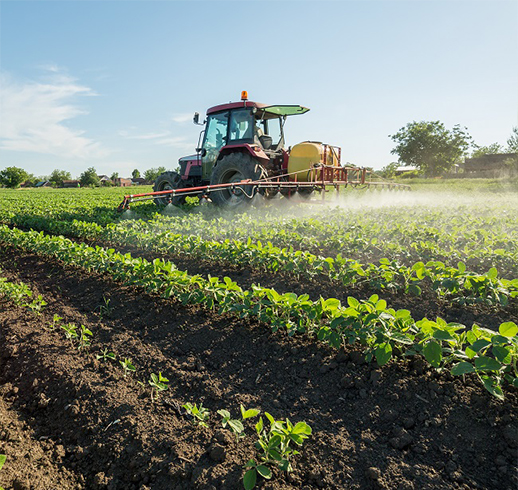
Invertebrate pest R&D services
Fera provides research and development services for a wide range of government departments and authorities, as well as commercial businesses, farmers and growers. Our research capabilities include:
Developing novel control methods for invertebrate pests
Research and development into novel pesticide targets and delivery systems, including hormones and receptors, parasitic wasp venoms, enhanced biological control by immune suppression, modifying reproductive behaviour, fusion proteins for enhanced oral uptake, novel toxins and RNA-interference (RNAi).
Developing new chemical and biological pesticides
Efficacy evaluation and development of insecticides, acaricides, molluscicides and adjuvants.
Developing integrated pest-management strategies for UK, European and invasive pest species
Strategies to tackle both indigenous and non-indigenous pests of agriculture, horticulture, tree and bee health importance, including improved monitoring, evaluation of non-chemical control techniques, natural enemies and ecosystem management.
Mite services and nuisance insects
Research and development, commercial monitoring services and strategic advice covering a range of mite-borne and insect nuisance problems, including storage and allergenic mites of food processing, stored products, animal feed stocks and habitation.
Biology and behaviour research
Understanding the biology and behaviour of key invertebrate pest species to advise on policy and control strategies.
For more information on these, or any of our other services, please get in touch.
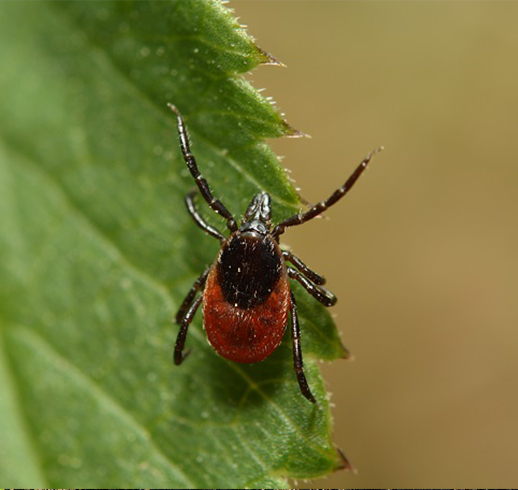
Pathology R&D
Our work helps farmers and growers to achieve more sustainable crop production while protecting the environment from disease threats, and focuses on disease surveillance and risk forecasting, supported by our expertise in epidemiology, pathogen and disease identification, molecular diagnosis, spatial aspects of disease spread, knowledge management and transfer.
-
Develop improved methods for controlling plant diseases
-
Support effective crop treatment through disease surveillance and risk forecasting
-
Optimise resources with improved disease-management strategies
-
Bespoke analysis to identify long-term disease trends
We can support you with our research expertise in pathogen epidemiology, disease-management strategies, chemical applications, pesticide efficacy testing (ORETO registered) and monitoring for resistance in pathogen populations. Our team is also a leading provider of research on quarantine plant pathogens. Our facilities include specialised quarantine laboratories and glasshouses, which we use to study the epidemiology and control of pathogens that may present a threat to UK farmers and growers.
We maintain culture collections of major plant pathogens including Fusarium species, Septoria tritici, Phytophthora ramorum, P. kernoviae and Hymenoscyphus pseudoalbidus (the cause of ash dieback). We can also collect additional isolates on request, particularly pathogens of wheat and oilseed rape.
Pathology R&D Services
Fera provides research and development services for a wide range of
government departments and authorities, as well as commercial
businesses, farmers and growers. Our pathology research capabilities
include:
Biology and behaviour research
Understanding the biology and behaviour of key invertebrate pest species to advise on policy and control strategies.
Mite services and nuisance insects
Strategies to tackle both indigenous and non-indigenous pests of agriculture, horticulture, tree and bee health importance, including improved monitoring, evaluation of non-chemical control techniques, natural enemies and ecosystem management.


Developing new chemical and biological pesticides
Efficacy evaluation and development of insecticides, acaricides, molluscicides and adjuvants.
Developing novel control methods for invertebrate pests Research and development into novel pesticide targets and delivery systems, including hormones and receptors, parasitic wasp venoms, enhanced biological control by immune suppression, modifying reproductive behaviour, fusion proteins for enhanced oral uptake, novel toxins and RNA-interference (RNAi).
Developing integrated pest-management strategies
Strategies to tackle both indigenous and non-indigenous pests of agriculture, horticulture, tree and bee health importance, including improved monitoring, evaluation of non-chemical control techniques, natural enemies and ecosystem management.
For more information about these services, please get in touch:

Copyright © 2025 Fera Science Limited (“Fera”). All rights reserved.
For further information about how Fera uses any personal data collected from you, please see our Privacy Notice at www.fera.co.uk/privacy-policy.


